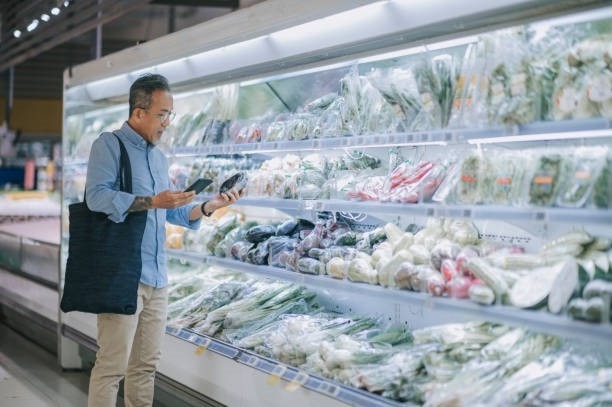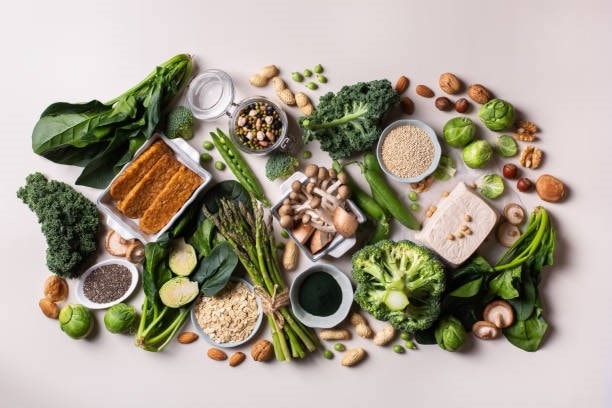- About Us
-
Help
Free 1:1 supplement advice
Not sure which supplement is right for you? Book a free, 15 minute telephone call with one of our nutritional experts.
Book your free consultationGet in touch (Mon to Fri, 9am - 5pm)
Customer Service: +44 (0) 1264 339 770
Order Enquiries: +44 (0) 1264 363 193
Contact us - Stockists
You are on the UK site
Hello US customer, you are currently shopping on the UK site. To ensure you are charged in the correct currency and receive accurate shipping costs, please switch to the US website and re-add your product to your basket.
You're away from FREE UK delivery Free UK delivery (applied at checkout) on orders over £10.00
You have qualified for Free UK delivery
Lifestyle
Friendly Bacteria for Vegans
November is World Vegan Month, with World Vegan Day on 1st November marking the anniversary of the birth of the Vegan Society in 1944. Vegan diets have seen a surge in popularity in the last 10 years. We are becoming more conscious of our meat consumption, from a health perspective and from a desire to take better care of our planet.
A vegan diet avoids all animal products in foods and drinks. While this may sound straightforward, in practice becoming vegan can feel overwhelming. Processed foods can have animal ingredients hidden in the ingredients. When you first start out on a vegan diet it's time consuming to check every item you pop into your basket.

Are dietary sources of friendly bacteria always vegan?
No. While many fermented foods, which are made by adding bacteria or yeast, are vegan, not all are. Vegan food sources of friendly bacteria include kimchi, sauerkraut, miso and tempeh, because they are made from vegetables or soya beans. Sourdough bread is also usually vegan but it's wise to check as sometimes extra non-vegan ingredients like honey and milk are added.
Yoghurt, cheese and kefir are other dietary sources of friendly bacteria, but they are not typically vegan because they are made from dairy.
Fermented foods are undoubtedly a useful addition to a vegan diet for their health benefits. But bear in mind they can contain high amounts of sugar and unnecessary preservatives.
Friendly bacteria strains in fermented foods
Fermented foods do contain some live bacteria but it’s not always possible to know exactly how much or which types. Sometimes the friendly bacteria strains are listed on the label, but not always.
All of the strains we use in our friendly bacteria supplements have been extensively researched to support specific conditions or age groups, and are proven to reach the gut alive. For example, Lactobacillus rhamnosus HN001, has been extensively researched in pregnant and breastfeeding women1 and Bifidobacterium breve M-16V® has been widely researched in babies2.
We know that different strains have unique properties, so by choosing a vegan friendly bacteria supplement that includes strain names in the ingredients you know what you’re getting. Optibac clearly list out the specific friendly bacteria strains in each product, alongside any other added ingredients, such as Vitamin D, Zinc and Calcium in our Gut Health Gummies.
Convenience and cost
Something else that sets vegan friendly bacteria supplements apart from vegan food is how convenient supplements are to take on a daily basis – simply swallow a capsule or chew a delicious gummy with your breakfast. Job done!
Not only that, but our capsule and powder supplements are flavourless (a big hit with young children) and cost effective.
Here at Optibac we know that making things clear and simple is vital for anyone wanting to make a difference to their health. That’s why we label our products with a Vegan icon to show that they are suitable for vegans.

Which Optibac supplements are vegan?
The good news for anyone following a vegan diet is that almost all of our friendly bacteria supplements are certified vegan. You can view our vegan friendly bacteria range in our online shop.
All of our dailies range of supplements are now vegan! This includes Every Day, Every Day EXTRA and Every Day MAX.
All the products in our kids range are dairy free and suitable for children with a dairy allergy. However, Babies & Children is not classed as vegan due to the added Vitamin D being derived from lanolin, which comes from sheep’s wool.
If you are looking to embrace the world of veganism, then please do read our FAQ Which Optibac are Best for Vegans? for more information.
References
- Slykerman R et al. (2017). Effect of Lactobacillus rhamnosus HN001 in pregnancy on postpartum symptoms of depression and anxiety: a randomised double blind placebo controlled trial . EBioMedicine, 24, 159-165.
- Patole et al. (2014). Effect of Bifidobacterium breve M-16V® supplementation on faecal Bifidobacteria in preterm neonates- a randomised double blind placebo controlled trial . PLoS one, 9 (3): e89511.
.png?lang=en-GB)
